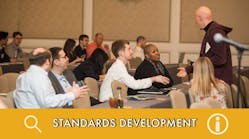SSL-powered Autonomous Greenhouse tomato challenge is ongoing in the Netherlands
Wageningen University & Research (WUR) has its second Autonomous Greenhouse Challenge underway in Bleiswijk, the Netherlands. Five teams are competing to use LED lighting and a bevy of their own technology to remotely manage a greenhouse growing cherry tomatoes. The contest will end in May and winners are scheduled to be announced at the Greentech 2020 event slated for June 8–10 in Amsterdam.
The challenge caught our eye because of the applicability of LED lighting and other technologies to automate the growing process. Such developments are a focus of our HortiCann Light + Tech Conference scheduled for Oct. 20 in San Jose, CA. Research is demonstrating that you can use dynamically-controlled spectra to optimize plant growth and that autonomous control of the growing environment along with real-time feedback of plant conditions can further optimize yield.
WUR provided each of the teams with greenhouse space. Heliospectra is one of the sponsors of the program, and supplied the teams with Elxia four-channel LED fixtures, and the company’s helioCORE control platform. The Elixia lighting is a supplement to high-pressure sodium (HPS) lighting already installed in each of the greenhouses.
The teams equipped their greenhouses with additional technology to make remote management of the greenhouses feasible with what WUR described as minimum manual intervention. The teams were able to install cameras and sensors of their choice and develop their own control scenarios including the use of artificial intelligence (AI) to optimize the growing operation over the six-month period of the contest. The teams also had the freedom to develop their own communications and IT systems to enable a successful challenge.
The five participating teams include:
- AICU: Staff, researchers and students from Wageningen University, Evertill Agricultural Co., IGMPR Flower, NXP Semiconductors, Parks & More, Ibeo Automotive, Amsterdam UMC, CGI, Rotterdam.AI, and Port of Rotterdam-Fordata.
- DIGILOG: Employees, researchers, and students from A-net, Hankyong National University, Seoul National University, University of Liege, Samsung Electronics, EZFarm, FARM8, Spacewalk, and ioCrops.
- IUA.CAAS: Employees, researchers, and students from the Chinese Academy of Agricultural Sciences (CAAS), the Chinese National Agricultural Science & Technology Center, the Chinese National Engineering Research Center for Information Technology in Agriculture, Sichuan Film and Television University, Syngenta Seeds B.V. Lushan Botanical Garden, Ghent University, LIVO, and Agro Care.
- The Automators: Staff and students from Delphy, Wageningen University, and 30 MHz.
- Automatoes: Employees, researchers, and students from Van der Hoeven Horticultural Projects, Delft University of Technology, Keygene, and Hoogendoorn Growth Management.
The challenge was purposefully scheduled for what were mostly winter months during which the supplemental lighting would have been most impactful. A larger group of 21 teams had competed in an initial challenge involving cucumbers back in 2018. The set of teams for the current competition was then trimmed to five during what WUR called a Tomato Hackathon in September 2019.
We have covered aspects of technology beyond LED lighting in our articles on presentations made first at our Horticultural Lighting Conferences and then last year at the rebranded HortiCann event. For example, at the 2017 event we learned about the use of an imaging sensor or camera to discern what a plant needs dynamically. Last fall, we wrote more about integrated technology for horticulture. Expect speakers at the 2020 event to dig even deeper.

Maury Wright | Editor in Chief
Maury Wright is an electronics engineer turned technology journalist, who has focused specifically on the LED & Lighting industry for the past decade. Wright first wrote for LEDs Magazine as a contractor in 2010, and took over as Editor-in-Chief in 2012. He has broad experience in technology areas ranging from microprocessors to digital media to wireless networks that he gained over 30 years in the trade press. Wright has experience running global editorial operations, such as during his tenure as worldwide editorial director of EDN Magazine, and has been instrumental in launching publication websites going back to the earliest days of the Internet. Wright has won numerous industry awards, including multiple ASBPE national awards for B2B journalism excellence, and has received finalist recognition for LEDs Magazine in the FOLIO Eddie Awards. He received a BS in electrical engineering from Auburn University.





